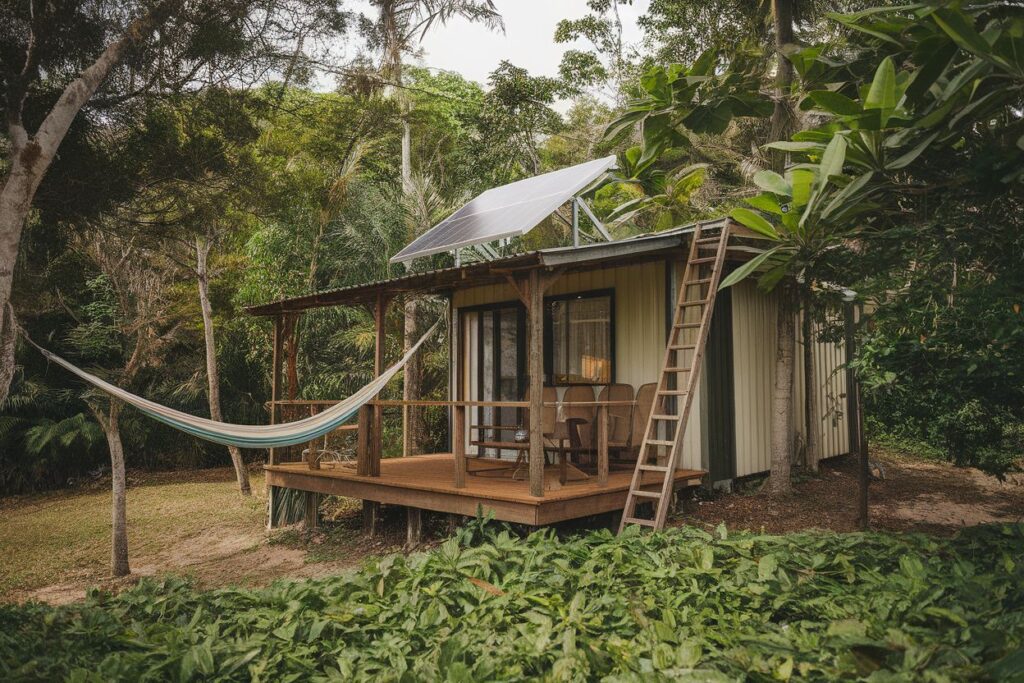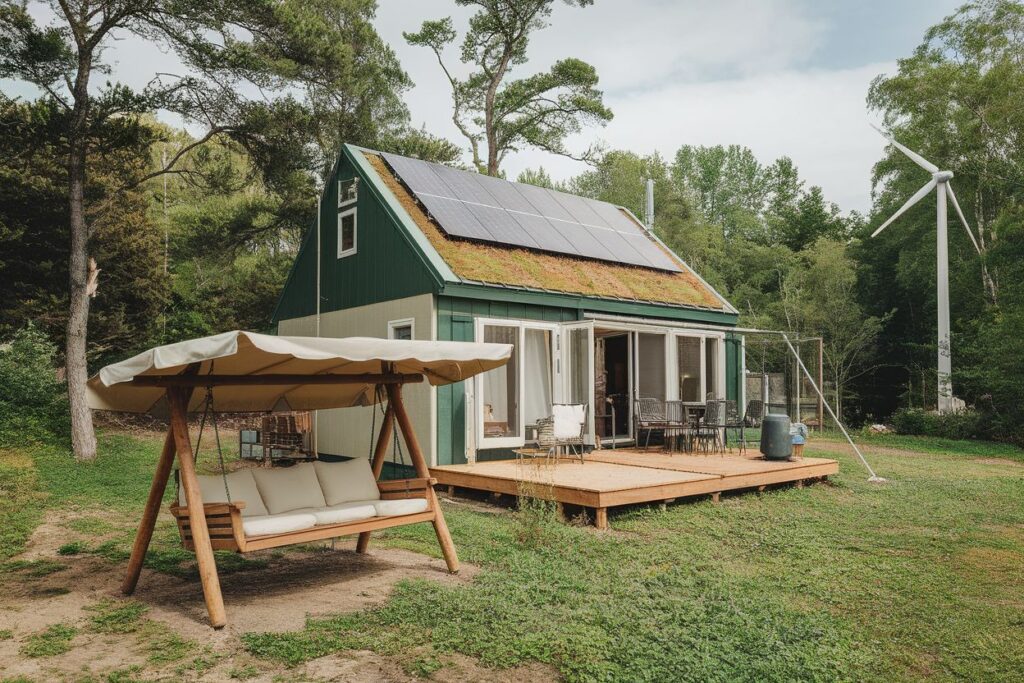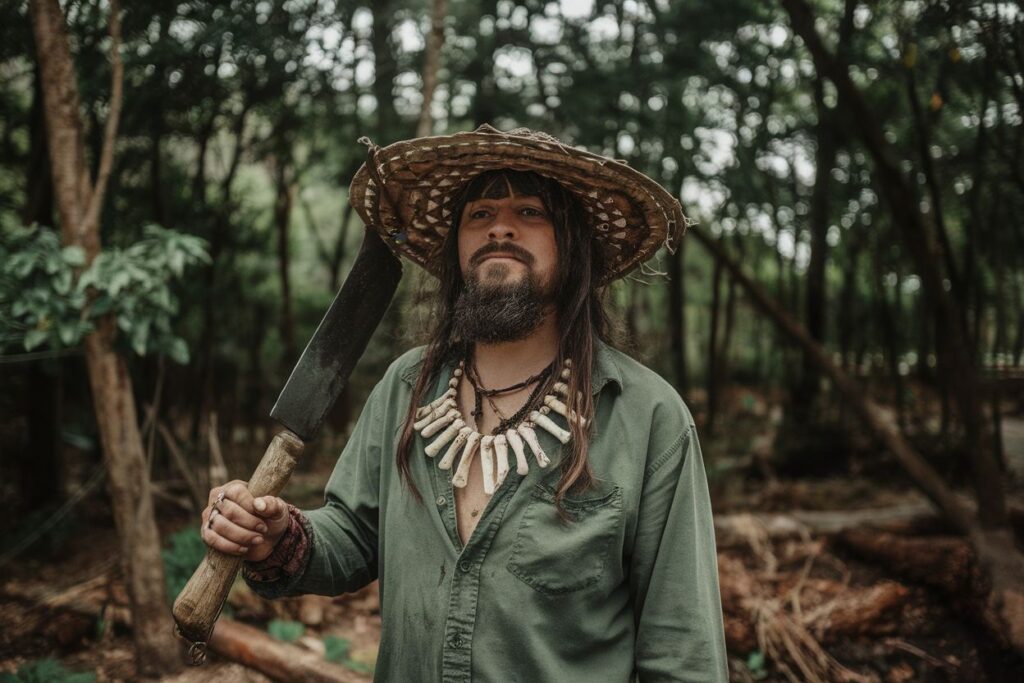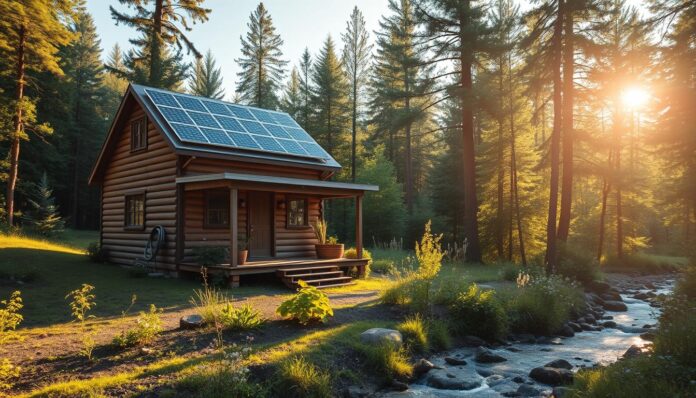In recent years, the living off-grid lifestyle has caught the eye of many. They seek more self-sufficiency and freedom. Sustainable living is now seen as a big change in what makes us happy and fulfilled.
Americans are looking for new ways to live that don’t rely on traditional utilities. The off-grid lifestyle is appealing. It lets people connect with nature, lessen their environmental footprint, and live more intentionally.
Off-grid communities are popping up in places like Colorado, Oregon, and Alaska. These folks show that happiness comes from meaningful experiences and being in control of your life.
With worries about climate change and economic issues, more see self-sufficiency as a way to find happiness. The off-grid lifestyle is a unique solution to today’s problems. It helps create stronger and more rewarding homes.
This journey will explore how leaving behind old ways might make us happier. It’s about finding a more genuine way to live life.
Understanding the Off-Grid Lifestyle Movement
The idea of off-grid living has changed a lot in recent years. It’s now a popular choice for many Americans who want to be more self-reliant and sustainable. This shift shows how people are now linking technology with personal freedom.
Defining Modern Off-Grid Living
Off-grid living is more than just not using public utilities. It’s about using sustainable technology and renewable energy to live independently. People use homesteading ideas and new tech to make their own power, manage water, and lessen their environmental footprint.
“Off-grid living is not about isolation, but about conscious connection to our resources and environment.” – Environmental Design Researcher
Historical Context and Evolution
Off-grid living started with pioneers who wanted to be free. Now, it’s a modern choice driven by caring for the environment and new tech. Solar panels, wind turbines, and smart energy systems make it easier than ever to be self-sufficient.
Current Trends in Off-Grid Communities
Today’s off-grid communities are varied and forward-thinking. They include everything from rural homesteads to urban micro-communities. They share values like sustainability, independence, and caring for the environment. These groups show that off-grid living is about living more intentionally, not isolating ourselves.
Psychological Benefits of Living Off Grid

Living off grid is more than just a choice. It’s a journey to mental well-being. People who choose this path often find less stress. They break free from the constant digital noise and societal pressures.
“Freedom is not worth having if it does not include the freedom to make mistakes.” – Mahatma Gandhi
Self-reliance becomes a daily practice. Growing food, making energy, and solving problems builds autonomy. These skills create a strong foundation for personal growth.
The off-grid lifestyle requires problem-solving and adaptability. People learn to trust themselves, not just external systems. This boosts mental resilience and self-confidence.
Remote living lets people disconnect from urban stress. It offers quiet spaces for reflection and meditation. This helps understand personal motivations and goals.
“In nature, nothing is perfect and everything is perfect.” – Alice Walker
Off-grid living is a challenging but transformative journey. It’s not just about survival. It’s about living a meaningful life, driven by personal values and real connections.
Environmental Impact and Personal Satisfaction

Off-grid living is more than just a lifestyle choice. It connects personal well-being with caring for the environment.
Carbon Footprint Reduction
Switching to off-grid living cuts down on carbon emissions. Solar panels and wind turbines provide clean energy. This reduces our need for the traditional power grid.
Homeowners can cut thousands of pounds of carbon emissions each year. This is thanks to smart, sustainable choices.
Sustainable Living Practices
Sustainable living is not just about energy. It also includes rainwater harvesting, composting, and using efficient appliances. These steps help protect the environment.
They also cut down on waste. This makes our homes more eco-friendly every day.
“Living off-grid isn’t about sacrifice—it’s about intentional, responsible interaction with our environment.” – Environmental Conservation Quarterly
Connection with Nature
Living off-grid helps people connect with nature. By managing resources and understanding nature’s cycles, we learn to appreciate the environment. This connection leads to personal growth and a sense of purpose.
Financial Freedom and Economic Independence
Off-grid living changes how we think about money. It lets us cut down on expenses and become more financially independent.
“Financial freedom isn’t about how much money you make, but how strategically you manage your resources.” – Sustainable Living Expert
Living off the grid saves a lot of money. People stop paying for electricity by using solar panels and wind turbines. This means big savings every month.
Off-grid living teaches us to spend wisely. We focus on what we really need. This includes using rainwater, growing our own food, and fixing things ourselves.
Investing in renewable energy pays off in the long run. The cost of starting up is worth it because we save money on bills. Many people save thousands each year, which helps them reach their financial goals.
Choosing a minimalist off-grid life helps us achieve financial freedom. It lets us break free from the old ways and build a stronger financial future.
Social Connections in Off-Grid Communities
Off-grid living doesn’t mean you’re alone. In fact, these communities often have stronger social bonds than regular neighborhoods. The shared values and support among residents create deep connections.
Building Meaningful Relationships
Building a community is key in off-grid living. People work together and share skills to survive. Everyone contributes their talents, from farming to managing resources.
“In our off-grid community, we don’t just live near each other—we truly support one another.” – Sarah Martinez, Off-Grid Resident
Community Support Systems
Off-grid communities offer more than just neighbors. They have strong support systems. Members share resources, knowledge, and emotional support.
Weekly meetings, skill-sharing, and solving problems together keep the community tight. These activities strengthen their bonds.
Overcoming Isolation Challenges
Distance can be a challenge, but technology helps. Off-grid folks use virtual platforms and meet in person. This keeps everyone connected and united in their green living goals.
Challenges and Mental Health Considerations

Switching to an off-grid life comes with mental health hurdles. People need to be good at solving problems and being self-sufficient. Moving away from regular life requires getting mentally ready and having a strong mindset.
“Off-grid living isn’t just about survival—it’s about thriving through personal transformation.” – Rebecca Green, Sustainable Living Researcher
Keeping your mental health up is key when you’re isolated and facing nature’s tests. Off-grid folks build inner strength by sticking to routines, staying connected, and learning new skills. They grow stronger by facing new situations head-on.
To stay mentally healthy, it’s important to talk openly, practice mindfulness, and have a supportive community. Technology can help keep off-grid people connected, reducing feelings of loneliness. It also supports their choice to live independently.
Experts say it’s vital to mentally prepare for off-grid life. Understand the challenges, have realistic goals, and have ways to cope. The path to off-grid living needs emotional smarts, flexibility, and a drive to grow personally.
Success Stories and Real-Life Experiences
Off-grid living is more than a choice—it’s a journey of personal growth. It changes individuals and families in profound ways. These stories show how life changes for the better, beyond what we expect.
Transformative Family Journeys
The Rodriguez family from Colorado is a great example of off-grid success. They moved to a self-sustained homestead and found many benefits. Their kids learned valuable skills, grew closer as a family, and learned to care for the environment.
“Living off-grid taught us resilience and self-reliance we never knew we possessed.” – Maria Rodriguez
Personal Growth Through Sustainable Challenges
Many people grow a lot when they choose off-grid living. The challenge of managing resources and creating sustainable food systems pushes them to grow. It helps them discover new things about themselves.
Long-Term Life Satisfaction
Studies show that off-grid communities are very happy. They report less stress and a stronger sense of purpose. This happiness comes from being closer to nature, their community, and their own abilities.
Final Thoughts
Off-grid living is more than just a choice; it’s a deep dive into sustainable living. It lets people find personal fulfillment by reconnecting with themselves and nature. This journey changes how we see life.
Living off-grid brings happiness from being independent and caring for the planet. It’s not easy, but many find a sense of purpose. This way of living is more than a change; it’s a new way to live well and protect the environment.
Off-grid living is a personal journey of self-discovery. It’s not for everyone, but those who try often find big changes. It shows a commitment to values and making a difference.
This lifestyle is a strong alternative for a better, more connected life. It’s not without its challenges, but the rewards are worth it. It’s about growing personally and caring for the planet.











